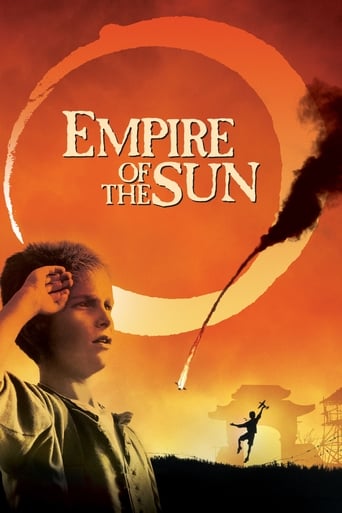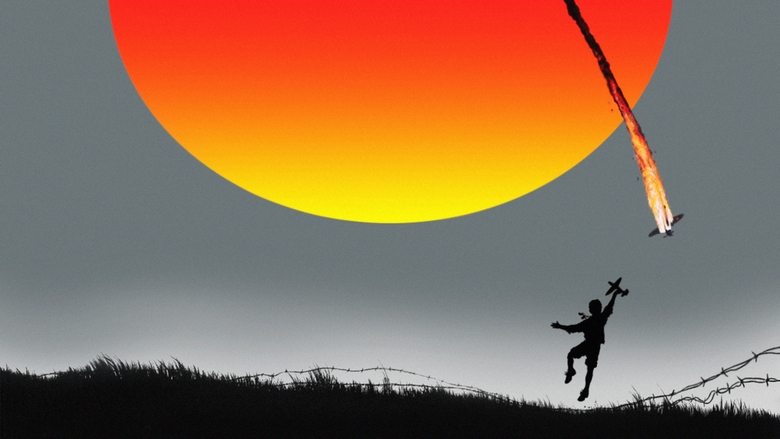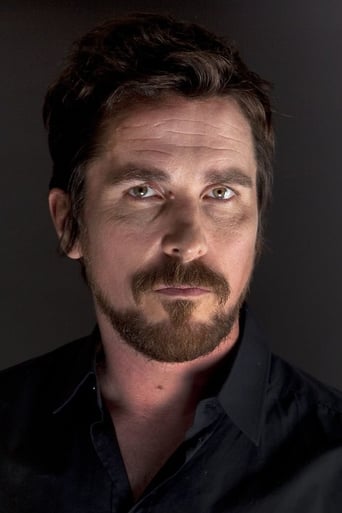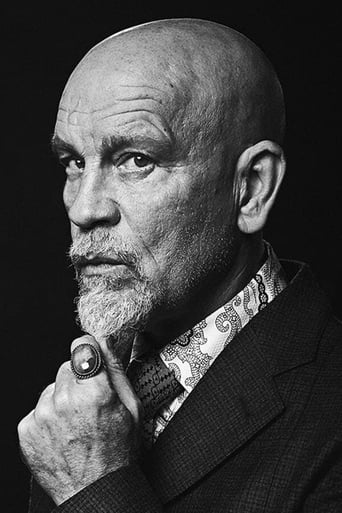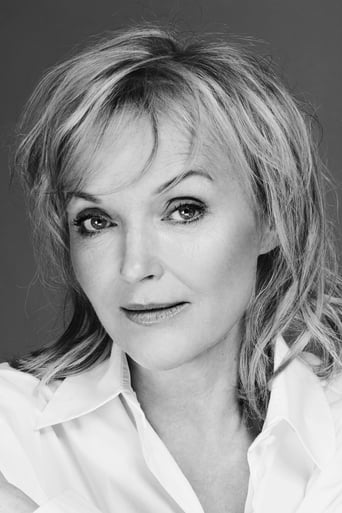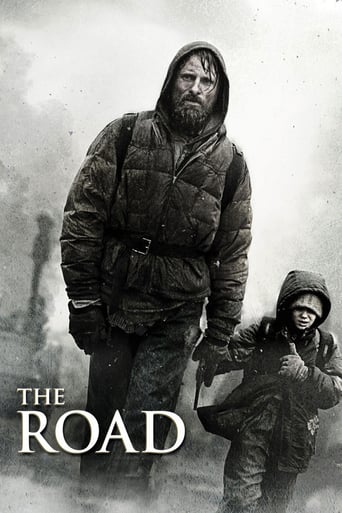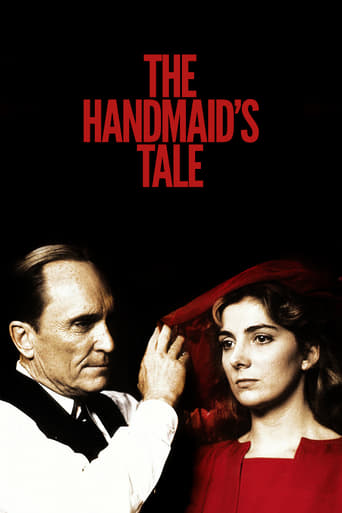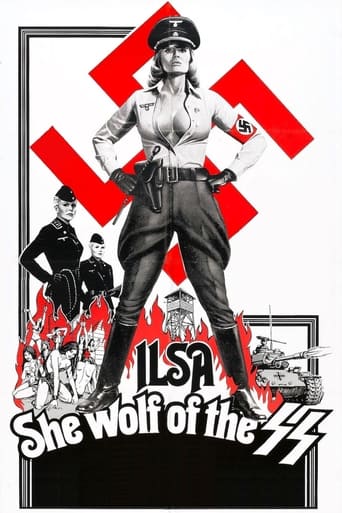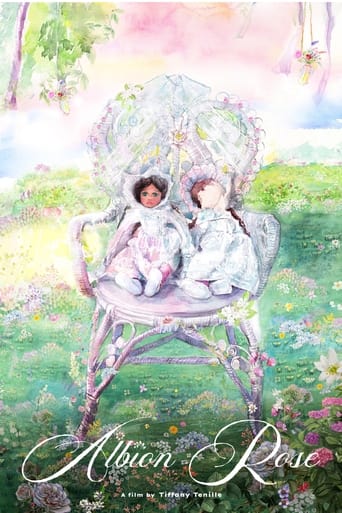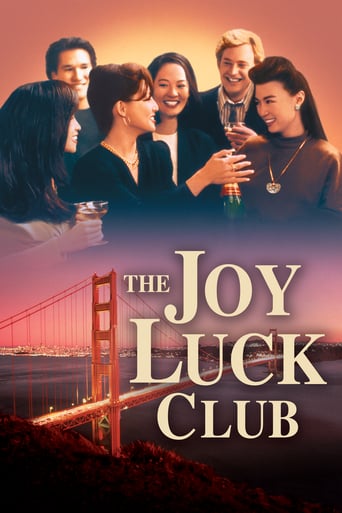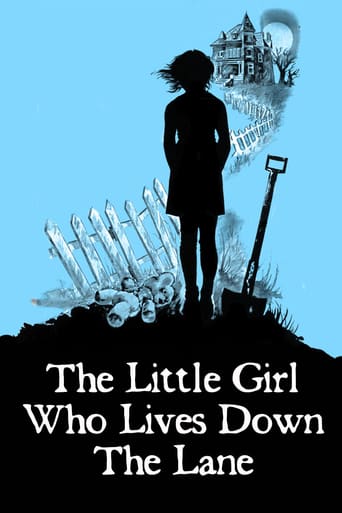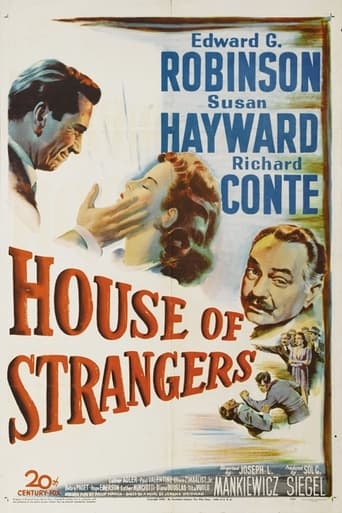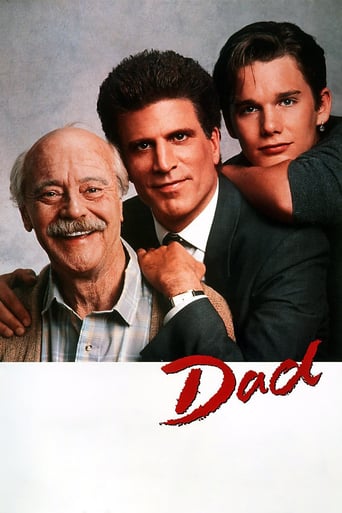Empire of the Sun (1987)
Jamie Graham, a privileged English boy, is living in Shanghai when the Japanese invade and force all foreigners into prison camps. Jamie is captured with an American sailor, who looks out for him while they are in the camp together. Even though he is separated from his parents and in a hostile environment, Jamie maintains his dignity and youthful spirit, providing a beacon of hope for the others held captive with him.
Watch Trailer
Cast


Similar titles
Reviews
As a fan of Spielberg's films, I felt obligated to see this film. While this is certainly a good film, this is not a great one or even one of Spielberg's best. Christian Bale does give a great performance, the visuals are spectacular, and John Williams gives a haunting score. This film though is very unfocused and aloof which can make the experience a bit of a chore to sit through. I have no issues with slow dramas as long as they keep me interested in the characters and their stories, but I felt no long attachment or affection for the characters other than Bale. There are great moments throughout that can make this movie worthwhile, but other moments that will make you wonder what is going on or why it should matter. Spielberg tries to make us feel emotion for this boy and his predicament, but all I could feel was emotional confusion. Spielberg's film unfortunately for me meanders from moment to moment showing signs of depth and understanding but ultimately feeling incomplete at the end.
There are only a few films perhaps less well remembered in the career of director Steven Spielberg (Jaws, Raiders of the Lost Ark, E.T. the Extra-Terrestrial, Schindler's List, Saving Private Ryan), this is one of those films, many critics see this film as a trial run for Schindler's List, I just knew it was set during the war, had a good cast and an average rating. Basically set during World War II, at the time of Japan's invasion of China, twelve-year-old British upper middle class schoolboy Jamie "Jim" Graham (young Christian Bale) enjoys a privileged and spoiled life in the Shanghai International Settlement. After the Attack on Pearl Harbor the Japanese invade the settlement, and Jim ends up separated from his mother (Emily Richard) and father (Rupert Frazer), through the panicked mob his parents shout that they will come back for him, Jim spends time hiding in his abandoned home and eats the remaining food. When food runs out Jim ventures out into the city, which has been devastated by bombings, he is taken in by American hustling partners Basie (John Malkovich) and Frank Demarest (Joe Pantoliano), but they are taken by the Lunghua Civilian Assembly Center in Shanghai for processing. In 1945, nearing the end of the Pacific War, Jim survives through terror and poor living conditions, establishing a successful trading network, camp leader Sergeant Nagata (Masatô Ibu) gets involved with it, and Dr. Rawlins (Nigel Havers), the camp's British doctor, teaches Jim, he learns how to speak Japanese. Jim visits the American POW barracks, he idolises the Americans and their culture, Basie sends him to set snare traps outside the camp's wire, in fact Basie is using him to test the area for land mines, to plot an escape, Basie rewards Jim by allowing him to move into the American barracks. As time has passed Jim has forgotten what his parents look like, the base is suddenly attacked by a group of American P-51 Mustang fighter aircraft, as a result the Japanese decide to evacuate the camp, Basie, despite promising to take Jim with him, escapes during the confusion, many of the prisoners die of fatigue, starvation and disease during the march into the wilderness. Jim arrives with the crowd at a football stadium near Nantao, filled with confiscated luxuries, Jim wanders off and overhears the news that the Japanese have surrendered and the war is over, after witnessing a Japanese teenager he met before being killed, Basie finds him and offers to find his parents. Jim is highly traumatised by everything he has gone through, and angered by the accidental death of his friend, but he is placed by Americans in an orphanage, here he is finally reunited with his parents in the end. Also starring Miranda Richardson as Mrs. Victor, Leslie Phillips as Maxton, Peter Gale as Mr. Victor, Robert Stephens as Mr. Lockwood, Burt Kwouk as Mr. Chen, Paul McGann as Lieutenant Price and Ben Stiller as Dainty. Bale does give a good performance as the boy separated from his parents and doing whatever he can to survive, the presence of stars such as Malkovich, Richardson and Havers are fine as well, the story is based on a semi- autobiographical novel by JG Ballard, but I agree with critics, being from the point of view of the boy this is perhaps a superficial look at life during war and occupation, there are some good sequences that engage you, but overall it is just an alright Second World War coming-of-age drama. It was nominated the Oscar was Best Cinematography, Best Art Direction- Set Decoration, Best Costume Design, Best Sound, Best Film Editing, Best Music for John Williams, it won the BAFTAs for Best Cinematography, Best Score and Best Sound, and it was nominated for Best Adapted Screenplay, Best Costume Design and Best Production Design, and it was nominated the Golden Globes for Best Motion Picture - Drama and Best Original Score. Worth watching!
GOD playing tennis: that's what Jim Graham (Christian Bale), a privileged British schoolboy living in high colonial style in the pre-Pearl Harbor Shanghai of 1941, sees in one of his dreams. God taking a photograph: Jim thinks he sees that four years and seemingly several lifetimes later, as a starving, exhausted prisoner witnessing the brilliant light of the atomic bomb.What transpires in between, the sweeping story of Jim's wartime exploits after he is separated from his family, is set forth so spectacularly in Steven Spielberg's ''Empire of the Sun'' that the film seems to speak a language all its own. In fact it does, for it's clear Mr. Spielberg works in a purely cinematic idiom that is quite singular. Art and artifice play equal parts in the telling of this tale. And the latter, even though intrusive at times, is part and parcel of the film's overriding style.Yes, when Jim crawls through swampy waters he emerges covered with movie mud, the makeup man's kind; when he hits his head, he bleeds movie blood. It's hard not to be distracted by such things. But it's also hard to be deterred by them, since that same movie-conscious spirit in Mr. Spielberg gives ''Empire of the Sun'' a visual splendor, a heroic adventurousness and an immense scope that make it unforgettable.There are sections of ''Empire of the Sun'' that are so visually expressive they barely require dialogue (although Tom Stoppard's screenplay, which streamlines J. G. Ballard's autobiographical novel, is often crisp and clever). Its first half hour, for example, could exist as a silent film -an extraordinarily sharp evocation of Shanghai's last prewar days, richly detailed and colored by an exquisite foreboding. Jim is first seen singing in a church choir (the Welsh hymn ''Suo Gan'' will echo again hauntingly later in the story), then gliding through crowded streets in his family's chauffeur- driven Packard. At home, he asks his parents off-handed questions about the coming war. When the three of them, elaborately costumed, heedlessly leave home for a party on the other side of the city, it's clear that their days there are numbered just from the way the Chinese servants wave goodbye.That first glimpse of the choirboys will prompt audiences to wonder which of these well-groomed, proper little singers is to be the film's leading man. Mr. Bale, who emerges from the choir by singing a solo, at first seems just a handsome and malleable young performer, another charming child star. But the epic street scene that details the Japanese invasion of the city and separates Jim from his parents reveals this boy to be something more. As Mr. Bale, standing atop a car amid thousands of extras and clasping his hands to his head, registers the fact that Jim is suddenly alone, he conveys the schoolboy's real terror and takes the film to a different dramatic plane. This fine young actor, who appears in virtually every frame of the film and ages convincingly from about 9 to 13 during the course of the story, is eminently able to handle an ambitious and demanding role.But other episodes are less sharply defined. When Jim, who has proudly won his right to live in the American barracks, returns to the British camp in which he formerly lived, it takes a moment to remember why he's back - not because the motive is unclear, but because his departure from the one place and return to the other are separated by intervening scenes.Still, there are many glorious moments here, among them Jim's near- religious experiences with the fighter planes he sees as halfway divine (in one nighttime scene, the sparks literally fly). And there is a full panoply of supporting characters, including Miranda Richardson, who grows more beautiful as her spirits fade, in the role of a married English woman who both mothers Jim and arouses his early amorous stirrings. It is the mothering that seems to matter most, for Jim's small satchel of memorabilia includes a magazine photograph of a happy family, a picture he takes with him everywhere. For a surrogate father, he finds the trickier figure of Basie (John Malkovich), a Yank wheeler-dealer with a sly Dickensian wit. Basie, who by turns befriends Jim and disappoints him, remains an elusive character, but Mr. Malkovich brings a lot of fire to the role. ''American, are you?'' one of his British fellow prisoners asks this consummate operator. ''Definitely,'' Mr. Malkovich says.''Gone With the Wind'' is playing at the biggest movie theater in Shanghai when the Japanese are seen invading that city, and ''Gone With the Wind'' is a useful comparison, at least in terms of subject and style. The makers of that film didn't really burn Atlanta; that wasn't their method. They, too, as Mr. Spielberg does, let the score sometimes trumpet the characters' emotions unnecessarily, and they might well have staged something as crazy as the ''Empire of the Sun'' scene in which the prisoners find an outdoor stadium filled with confiscated art and antiques and automobiles, loot that's apparently been outdoors for a while but doesn't look weatherbeaten in the slightest. Does it matter? Not in the face of this film's grand ambitions and its moments of overwhelming power. Not in the light of its soaring spirits, its larger authenticity, and the great and small triumphs that it steadily delivers.
A tough film about the cruelty of war and the death of innocence, "Empire Of The Sun" seems dedicated to a single point, that Stephen Spielberg can make a serious film. Unfortunately, "serious" is not the same as "good."It's December, 1941. Young Jamie Graham enjoys a life of privilege in western-controlled Shanghai, China. Those good times are about to end, thanks to the very same Japanese war machine Jamie idolizes. After the tanks roll in, he is separated from his parents and forced to fend for his own in a bleak landscape.Based on the real-life experiences of author J. G. Ballard, "Empire Of The Sun" is a story about human suffering above all. Another review here, more positive, describes it as "a small story told on a vast canvas," and that captures it for me, too. It's a painterly film, with vivid imagery abounding. In that way, Spielberg often channels the director originally slated to make this, David Lean. That said, I found myself thoroughly alienated from the people and situations involved.Christian Bale is a stunning actor, able at 12 to deliver the kind of performance as Jamie that raps you on the head like a two-by-four. But he's a handful. Either he's talking a mile a minute or staring off into space in some kind of feral transport. He's also really obnoxious and unlikable. This is noticed by some of the other characters, too."You're starting to get on my nerves," says an American scrounger he runs into in Shanghai, Frank (Joe Pantoliano)."Very difficult boy," is the verdict of Sgt. Nagata (Masatô Ibu), commander of the internment camp where Jamie is sent.My favorite is the response given by fellow prisoner Mrs. Victor (Miranda Richardson), when Jamie asks why the Japanese closed the schools: "To punish their parents."You have to find things to entertain you watching "Empire Of The Sun," since this is one time Spielberg won't do that for you. Like Jamie, or Jim as it becomes later, this is serious business all the way through, with starvation and disease gnawing at your elbows and hardly any hope in sight. Don't look for a bright light here; it just may be an atomic explosion."First one side feeds you, the other side tries to get you killed, then it's all turned around," Jim is told by his sometime buddy Basie (John Malkovich). "It's all timing."Malkovich is in great form, as movie-star ready as he ever looked on screen, and to solid effect, but I never got his purpose here. He doesn't bond with Jim, nor figure much in the outcome. No one does; Jim just wanders around until the scene shifts, after long languors, to something else. There's a desperate need here to trim, especially in the beginning and the end, but Spielberg and screenwriter Tom Stoppard are more concerned with Big Moment Cinema. We watch Jim serenade kamikaze pilots with a schoolboy chorale, and a minute later he's cheering their deaths at the top of his lungs, chanting "P-51! Cadillac of the skies!" If Spielberg can't engage you, he'll overwhelm you trying.Spielberg has gone on to make other serious movies, and to my mind, done so more successfully even if his tendency to overpush remains. You see moments here that remind you how good he is at scene-setting, but if I said I cared for five straight minutes watching "Empire Of The Sun," I'd be lying.

